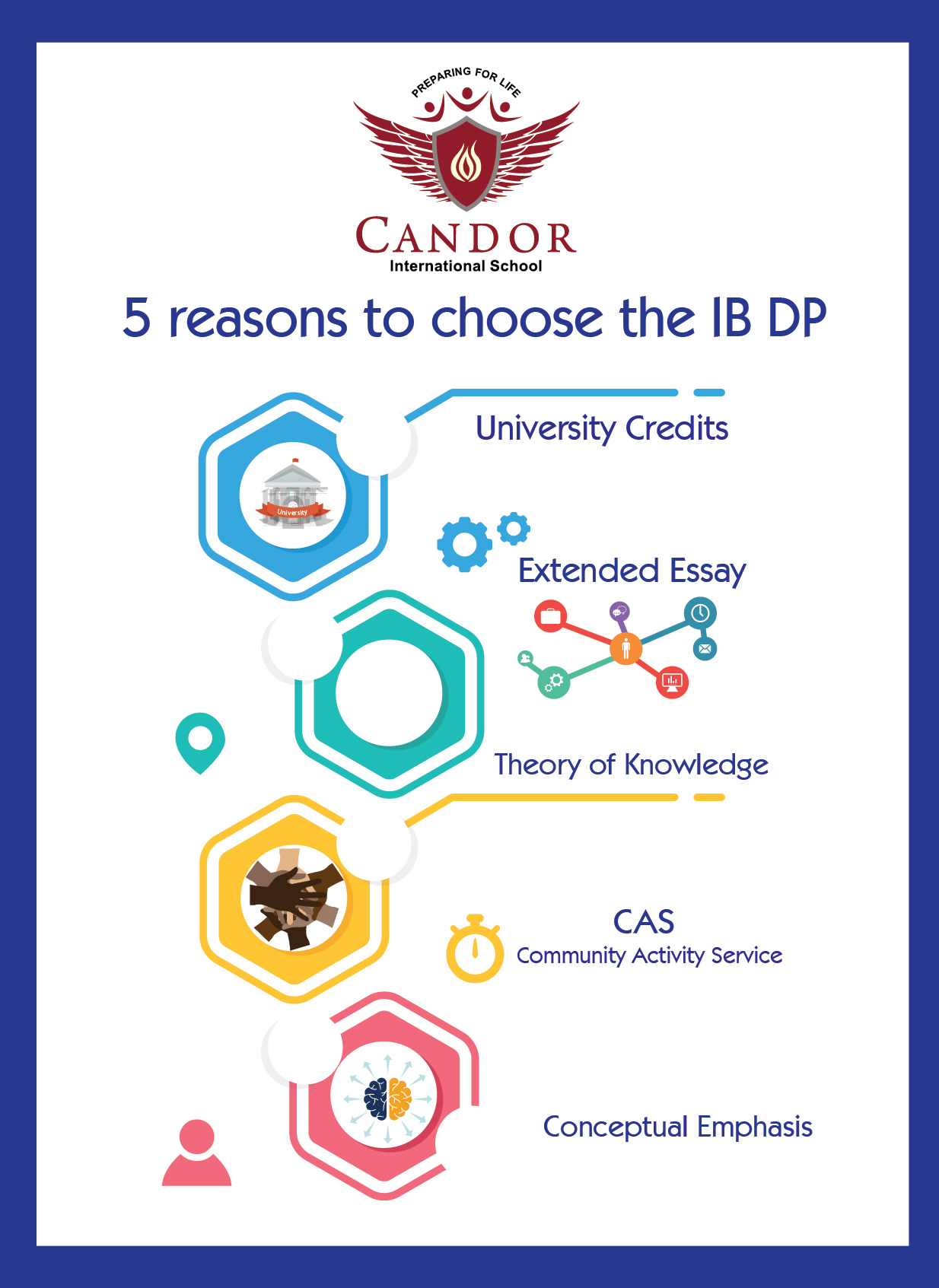
The International Baccalaureate Diploma Programme (IB DP) is an internationally-recognized curriculum. Read on to find out what makes it unique.
The IB has been around for 50 years, and in India since 1976. The IB DP is the syllabus of choice for parents who want a holistic yet solid academic education for their children.
Here are the top 5 reasons parents – and students – choose the International Baccalaureate Diploma Programme (IB DP).
1) University Credits: If you score a 7 (the highest grade) in a Higher Level subject, you may receive credits you can use against a basic level subject during your first year of university. For example, a 7 in the IB at Higher Level Math may mean you can skip a basic math course in your first year, because you have already demonstrated your skill and knowledge in the subject.
2) Extended Essay: You practice university-level research and writing skills at highschool. Every IB Diploma student is required to write a 4,000 word research essay that is structured similar to university-level independent research. You choose a topic based on a subject you are taking, form a hypothesis, collect data, and analyse and present your findings. The research topic must be original, new and present results or a point of view that has never been discussed before. This IB requirement prepares students for the demands of higher education courses.
3) CAS: CAS stands for Community Activity Service and is a non-academic, mandatory subject. CAS gets children involved in their local community to find a way to improve the society they are part of and sensitize them to social issues. CAS is an important part of the personal growth section of the IB, and helps students become well-rounded individuals.
4) Conceptual Emphasis: The exam tests conceptual and practical understanding of a subject as opposed to rote-learning. Therefore, all tests, assessments etc. are written in a way that checks whether you are able to apply the concept in new situations. For example, a Physics Higher Level question on Motion may ask you to explain the concept of displacement and how to prove it. The same rigour carries over into all subjects: an English Higher Level question may ask you to compare the usage of metaphors between two books. Such questions test your understanding beyond the facts, and require you to use your critical thinking skills.
5) Theory of Knowledge: The subjects are not taught in isolation as the subject of Theory of Knowledge (TOK) creates an interdisciplinary link. TOK challenges you to question what you know, and how you know it. Theory of Knowledge is assessed through a 1,600 essay as well as an oral presentation. An example of a TOK essay question is: “There is no such thing as a neutral question. Evaluate this statement with reference to two areas of knowledge”. This type of question stimulates original thinking in students, which is what the IB strives to encourage.
The IB DP is a challenge. You are are required to take 3 higher level subjects and 3 standard level subjects. There is a mixture of coursework and exam-based assessment for certain subjects, mimicking the assessment system at university. You must take the Extended Essay, Theory of Knowledge, and CAS in addition to your 6 academic subjects. The Extended Essay and TOK contribute to the overall score at the end of the 2 year programme.
For students who do the IB DP, the 2 year-course is seen as more than a high school diploma: it is an international qualification which teaches them to become globally minded, confident and independent learners.
Want to discuss your higher education goals and understand whether the IB DP is the right curriculum for you? Make an appointment to visit the Admissions Officer for a personalized discussion.




